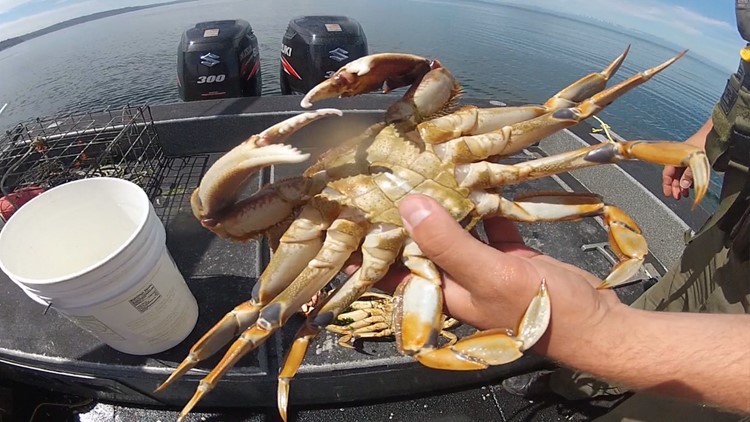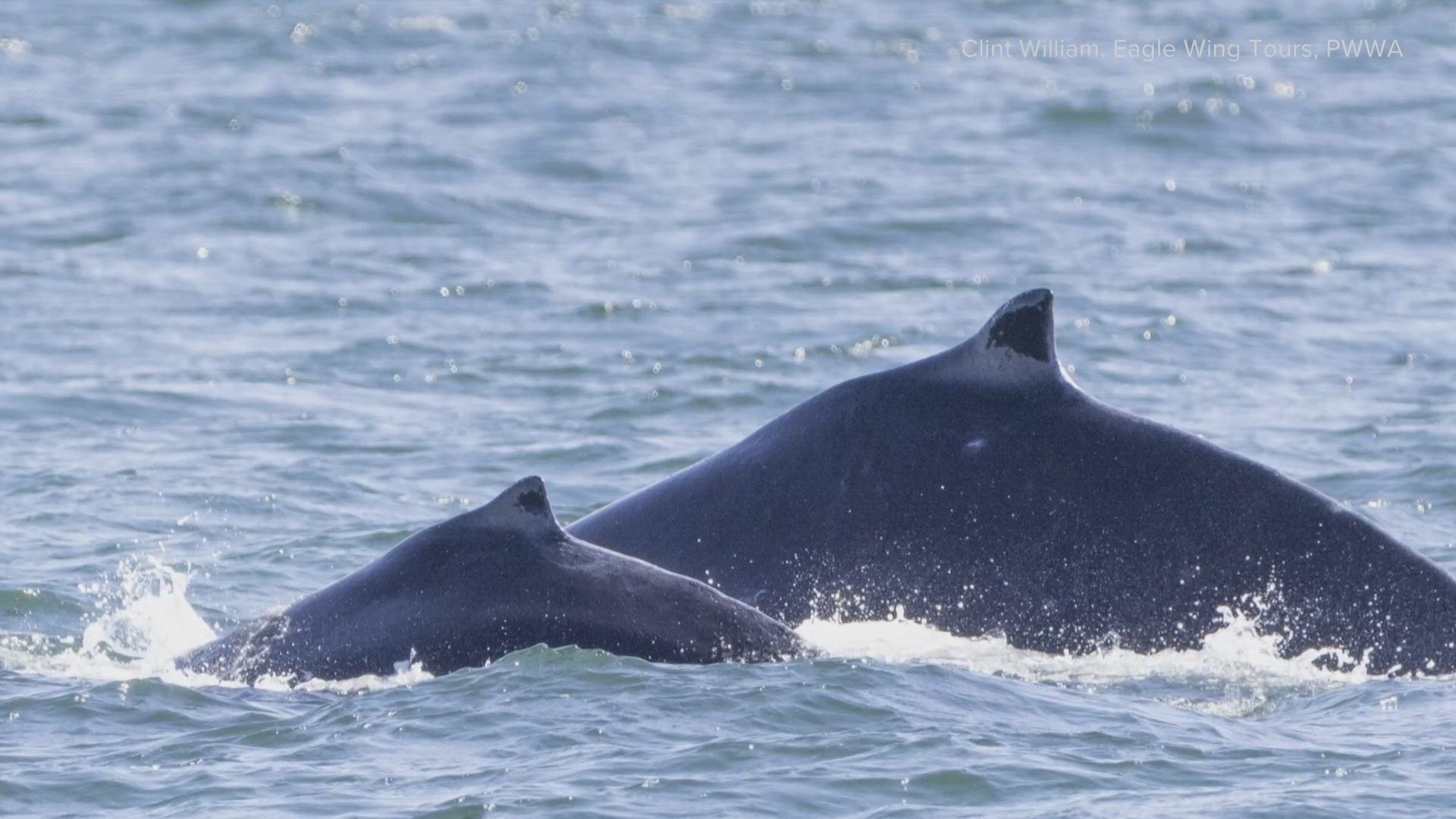Dungeness crab season for the entire West Coast from Northern California to Canada will start two weeks late, the Washington Department of Fish and Wildlife announced Friday.
It was set to open December 1 and will now open December 16.
The decision was made because the crabs in Washington state are too small. They don't have enough meat and need more time to grow.
There is also a harmful algal bloom off the coast of Oregon which has delayed the season there. There is some concern that the algal bloom could move north with winter ocean currents.
It's no surprise to University of Washington research scientist Ryan McCabe who forecasts the movement of harmful algae. Lately, he's been busy.
"For the past three years, we've had events every single year in Washington and in Oregon," he said.
McCabe is tracking pseudo-nitzschia which produces a neurotoxin called domoic acid. It acts like a poison for the brain and builds up in shellfish like Dungeness crabs.
Domoic acid poses a major health risk for mammals. A sea lion was recorded several years ago having a seizure because of it, and it's just as dangerous for humans.
"It's very serious. It can lead to short-term memory loss in minor cases all the way up to death if enough is consumed," McCabe said.
Right now, the algae is off the coast of Oregon, but it could soon move north to Washington. The Dungeness crab season is now delayed on the West Coast, all the way from northern California to Canada. It's really bad timing since the Dungeness crab fishery is one of the area's most lucrative.
The fishing season closures have been more common since 2015 because of warmer oceans. Scientists believe it's due to lingering effects of "the blob," a warm expanse of water off the coast of Washington in 2015 that caused all kinds of weather abnormalities.
"That becomes a problem, especially for coastal communities that rely on razor clam harvests and stuff like that for income. It's a serious problem for the coastal communities. One event can shut down your season, but if that even lingers and then you have a follow-up event the next fall and the next spring, it snowballs from there," McCabe said.
For more information, visit Washington Department of Fish & Wildlife -Fishing & Shellfishing.



